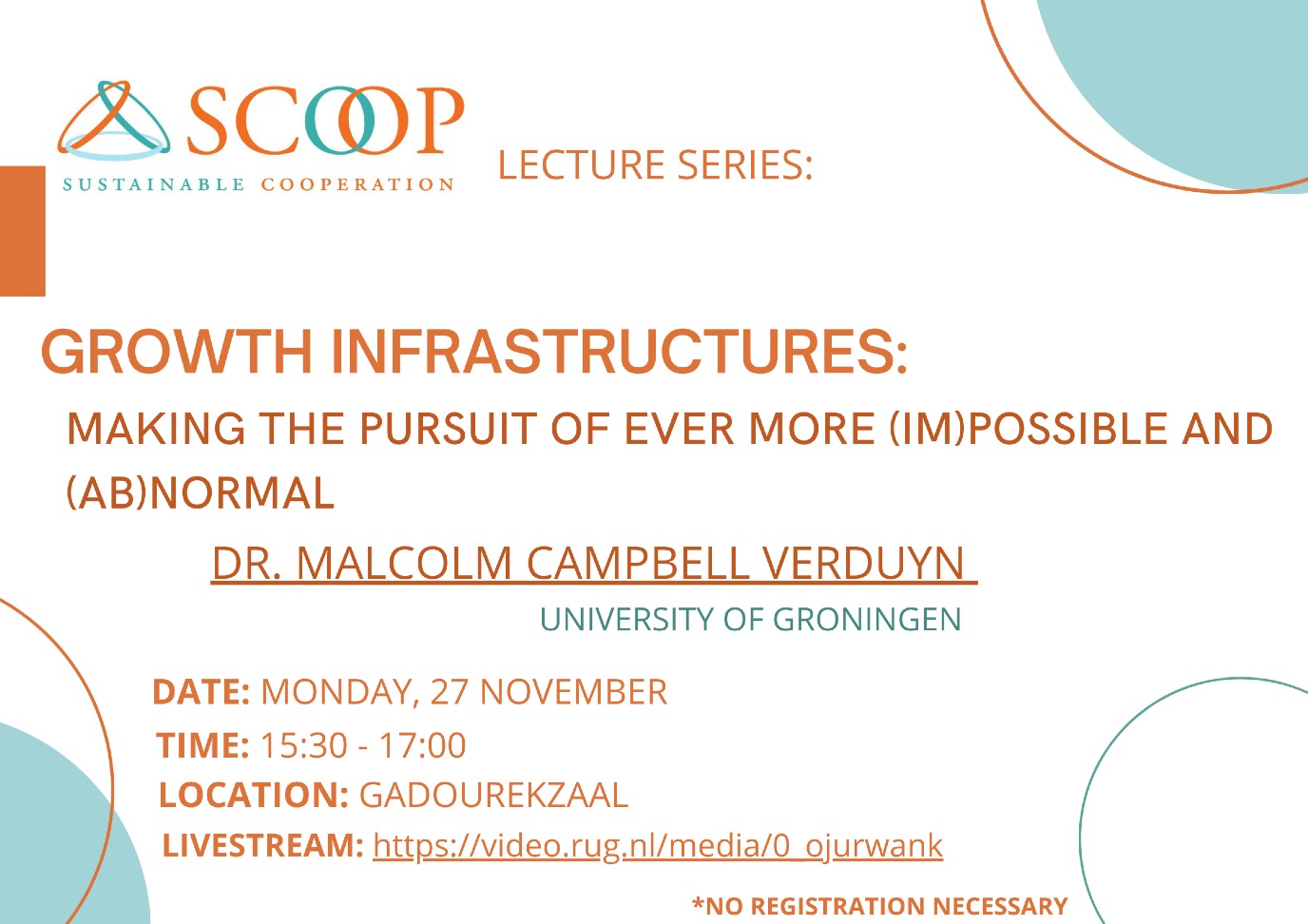Growth infrastructures - Making the pursuit of ever more (im)possible and (ab)normal |SCOOP Lecture by dr. Malcolm Campbell-Verduyn
| When: | Mo 27-11-2023 15:30 - 17:00 |
| Where: | Gadourekzaal, University of Groningen |

Growth infrastructures: Making the pursuit of ever more (im)possible and (ab)normal" by Dr. Malcolm Campbell-Verduyn
Scoop
This lecture is organised by SCOOP
Location: Gadourekzaal, University of Groningen
Livestream link: https://video.rug.nl/media/0_ojurwank
Dr. Campbell-Verduyn
Dr. Campbell-Verduyn is a Senior Lecturer in International Political Economy in the Department of International Relations and International Organization, Faculty of Arts, University of Groningen, as well as Associate Senior Research Fellow at the Käte Hamburger Kolleg Centre for Global Cooperation Research, University of Duisburg-Essen, Germany.
Abstract of the lecture
How has economic growth become so entangled in human activities?
This presentation argues that the quest for continuous growth is not merely a matter of policy or institutional design, but rather embedded in the socio-material relations underpinning contemporary society.
The concept of ‘growth infrastructures’ is developed in a collaboration with Dr. Matthias Kranke (University of Freiburg) connecting interdisciplinary debates on infrastructure(s) and (post-)growth, each of which has recently expanded in isolation from the other.
Growth infrastructures, we contend, help reveal how the pursuit of (post-)growth (re)shapes – and is (re)shaped by – different kinds of socio-material entanglements. T
The concept we elaborate responds to a trio of imperatives that together implore social science to better illuminate the possibilities and limits of transformations that are required to tackle today’s rapidly unfolding and intersecting socio-ecological crises:
-
broadening the study of what matters for large socio-technical systems to orient away from economic growth on a finite planet;
-
denaturalising the taken-for-grantedness of growth-oriented structures by foregrounding the – the relations below the surface – that are typically backgrounded but shape, compromise or direct even from positions of marginalisation; and
-
opening up intersecting intellectual and practical spaces for undoing or repurposing growth infrastructures to help materialise more ecologically and socially sustainable relations amongst beings on our planet.

